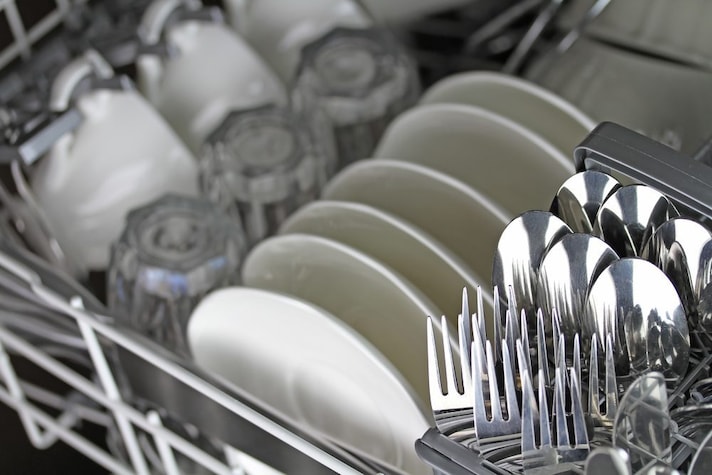Here’s Why You Should Never Rinse Dishes Before Putting Them Inside of The Dishwasher
According to a study backed by scientist Brashear, rinsing dishes before loading them into the dishwasher may actually reduce the effectiveness of the detergent. The reasoning is simple: the detergent works best when it has food particles to cling to, allowing the enzymes to break down the mess. So, leaving a little bit of dirt on your plates could actually help get them cleaner.
;Resize,width=742;)
It’s a topic that sparked a lot of online debate recently: Should you rinse your dishes before putting them in the dishwasher? Morgan Brashear, a scientist from Cascade (Procter & Gamble), suggested that rinsing isn’t necessary, and the internet didn’t hold back in its reaction. People took to the comments sections in droves, calling the idea outrageous. But is it really such a bad idea?
Carolyn Forte, the director of the Good Housekeeping Institute's Cleaning Lab, supports Brashear’s viewpoint. She says that while you should scrape off food scraps before washing, that’s all the prep your dishes need. Let’s dive into the reasons behind their stance:
1. Modern Dishwashers Might Clean Better Without Pre-Rinsing

Brashear explains that most modern dishwashers come equipped with sensors that detect how dirty the dishes are. These sensors adjust the washing cycle’s temperature and length to match the level of dirt. If you rinse your dishes, the dishwasher might think they're cleaner than they really are, leading it to run a shorter cycle. This results in a less thorough clean. However, this only applies to newer machines (those costing over $500).
2. Dishwasher Detergent Works Best With Some Food Left on the Dishes

Cascade’s makers recommend against pre-rinsing because doing so can actually prevent the detergent from working properly. The enzymes in Cascade’s formula are designed to cling to food particles and break them down. Without any food, these enzymes have nothing to attach to, making the detergent less effective. So, the food that's left on your plates actually helps the dishwasher do its job.
3. Your Dishes Won’t Get Any Cleaner with Extra Rinsing

It might seem like rinsing is a good idea, but modern dishwashers are designed to handle dirty dishes without the need for extra steps. Research shows that rinsing doesn’t improve the cleanliness of your dishes; today’s dishwashers do an excellent job on their own. You’re simply wasting time and effort for no better result.
4. Pre-Rinsing Wastes Water and Energy

Pre-rinsing dishes is not just a time-waster—it’s a waste of resources too. According to Consumer Reports, pre-rinsing uses up to 6,000 gallons of water per year. In contrast, a modern dishwasher uses just 3 to 5 gallons per load. Plus, washing by hand typically consumes 8 to 27 gallons of water, no matter how efficient you think you are. You’ll also use twice as much electricity doing it by hand. The only time pre-rinsing might be useful is if you plan to let your dishes sit for a while before running the dishwasher, but even then, your dishwasher should handle the job.
5. It’s a Waste of Your Time

Rinsing dishes before loading them into the dishwasher is simply unnecessary. And let’s face it—standing at the sink is wasting time that could be better spent elsewhere. If you're still washing dishes by hand when you own a dishwasher, it’s time to rethink your strategy. An Energy Star-rated dishwasher can save you up to 230 hours per year—that’s 10 whole days! Just think about all the things you could do with that extra time.
;Resize,width=767;)

;Resize,width=712;)
;Resize,width=712;)
